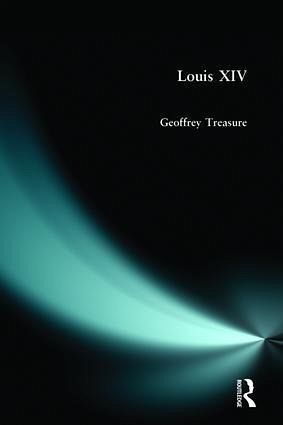
Louis XIV
Versandkostenfrei!
Versandfertig in 1-2 Wochen
64,99 €
inkl. MwSt.
Weitere Ausgaben:

PAYBACK Punkte
32 °P sammeln!
Between adulation and hostility, historians have struggled to achieve a balance in their interpretation of Louis XIV. In this new history, Geoffrey Treasure expertly manages to achieve this by setting Louis in the style and thinking of the period. He emerges as a credible figure because he is of his age. Also providing powerful sketches of the leading figures, Colbert, Bossuet, Fenelon, Mme de Maintenon and many others, Treasure helps to evaluate the propaganda and detach Louis from the image and the 'spin'.














